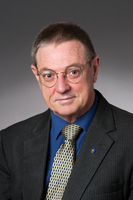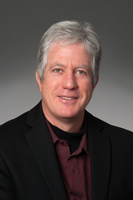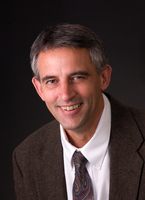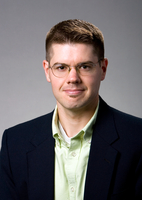Dr. Michael Andregg, Justice and Peace Studies Department, College of Arts and Sciences, presented a paper on “All Source Intelligence Tradecraft for the Third Millennium” at an international conference on intelligence affairs held Oct. 18 at the Mihai Viteazul National Intelligence Academy of Romania. About 30 countries were represented. After that he spent four days with professors and students at the academy lecturing on aspects of the “Developing Global Crisis” that complicate everyone’s plans for the future of civilization, much less intelligence affairs. Intelligence professionals for most nation states now must contend with many complex, interdisciplinary threats with security consequences but few or no military solutions (like global warming, transnational financial crimes, WMDs proliferating to potential ‘terrorists’ and charmers like North Korea’s Kim Jong Un, corruption of governance, etc.). Among these threats corruption of governance is probably the most pernicious because governments hire, train, equip and deploy most intelligence professionals and spies today although criminal entities compete for that distinction.
Dr. David Kelley, Dr. Paul Lorah and Catherine Hansen, Geography Department, College of Arts and Sciences, and students attended the 2013 GIS/LIS Consortium annual conference, Oct. 10-11, in Rochester, Minn. Senior Emily Jorgensen received an Outstanding Student Representative award. Junior Mitch Schaps won first place and $100 in the research poster competition. Hansen received the consortium’s Polaris Award, which recognizes active, established leaders in the geospatial community. Kelley, who serves on the consortium’s Scholarship Committee, served as judge for the undergraduate and graduate student research competitions.
Dr. David Kelley and Dr. Paul Lorah, Geography Department, College of Arts and Sciences, and students attended the 2013 West Lakes Division regional meeting of the Association of American Geographers, which took place Oct. 17-19 at the University of Wisconsin – Eau Claire. Senior Fartun Dirie presented her research, “Antenatal Care and Healthcare Access in Mozambique: an Issue of Spatial Inequality.” Senior Emily Jorgensen presented her research, “The Best Places to Live: Discovering the Urban Villages of the Twin Cities.” Juniors Mitch Schaps and Nick Ronnei presented their research, “St. Thomas Takes a Nice Ride: Linking Amenities to Activity Space." Lorah gave a talk, titled: “Accessibility, Isolation, and the New American Frontier." Kelley presented: “Increased Ethanol Production Impacts on Minnesota Wetlands."
James Rogers, Center for Irish Studies, is the author of a personal essay titled “The Sweetly Sad Season” in the current issue of Notre Dame Magazine. The essay is a ruminative reflection on September in Minnesota.
Dr. AnnMarie Thomas, School of Engineering, is the author of a chapter titled “Squishy Circuits” in the book Design, Make, Play: Growing the Next Generation of STEM Innovators, edited by Drs. Margaret Honey and David Kanter. This chapter discusses work on playful electrical circuit work done in collaboration with students Samuel Johnson (Engineering ’12) and Matthew Schmidtbauer (Engineering ’13), and Dr. Jeff Jalkio, Physics Department, College of Arts and Sciences.
Dr. Daniel Tight, Modern and Classical Languages Department, College of Arts and Sciences, is a co-author, with Dr. Carol Klee of the University of Minnesota and Dr. Rocío Caravedo of the Università degli Studi di Padova, of an article, “Variation and Change in Peruvian Spanish Word Order: Language Contact and Dialect Contact in Lima," which was published in a special issue of the Southwest Journal of Linguistics dealing with Spanish dialect contact in the Americas.
Dr. Edward Ulrich, Theology Department, College of Arts and Sciences, is the author of “Poetic Influences on the Development of Aurobindo’s Spiritual and Nationalistic Convictions” published in Situating Sri Aurobindo, A Reader, edited by Peter Heehs, Oxford University Press, New Delhi (2013).











